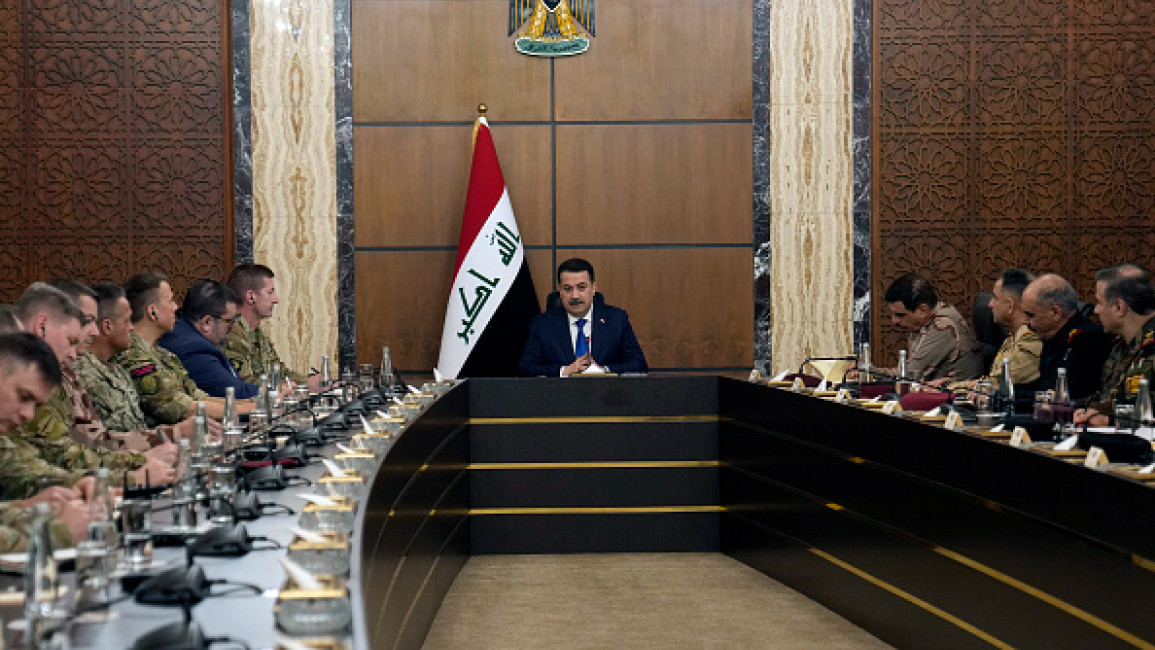Iraq, US at odds over presence of US-led coalition forces
Iraq and the United States on Saturday initiated discussions regarding the future presence of US forces in Iraq, with Baghdad anticipating a timeline for withdrawal.
However, US officials have stressed that the talks do not involve the withdrawal of the US forces in Iraq.
Iraqi Prime Minister Mohammed Shia al-Sudani chaired the first round of the meetings of the US-Iraq Higher Military Commission (HMC), aimed at “Reviewing the mission of the US-led international coalition against ISIS, following Iraq’s victory over one of the most formidable terrorist groups in the world,” the prime minister's office said in a statement.
According to the statement, the activities of HMC focused on three dimensions – the level of threat posed by ISIS, operational and environmental requirements, and the enhancement of the growing capabilities of the Iraqi security forces.
“Following this review, a specific timetable will be formulated to end the military mission of the Coalition, and transition to bilateral security relations between Iraq, the United States, and partner countries in the Coalition,” reads the statement. “With a commitment to the Iraqi-US Strategic Framework Agreement signed in 2008 and also a commitment to the safety of Coalition advisors during the negotiation phase across the country, ensuring stability and preventing escalation.”
However, Deputy Pentagon Press Secretary Sabrina Singh said on Thursday before the joint Iraq-US meetings that the HMC meetings will not involve US withdrawal from Iraq.
"Let me be clear, the HMC meeting is not a negotiation about the withdrawal of U.S. forces from Iraq," Singh was quoted by the Pentagon as saying. "The United States and the coalition are in Iraq at the invitation of the Iraqi government to fight ISIS. Our Iraqi partners have assured us of their commitment towards working together to shape this future on U.S. military presence and the enduring defeat of ISIS.”
She also clarified that the HMC will facilitate the establishment of a lasting bilateral security partnership between the US and Iraq, leveraging the achievements of the campaign against the IS group in collaboration with the Combined Joint Task Force Operation Inherent Resolve.
Since Israel initiated its war on Gaza last October, the Islamic Resistance in Iraq, a coalition of Iranian-backed militias, has conducted attacks on bases hosting US forces in Iraq and Syria. The group asserts that these strikes are retaliatory measures against Washington's backing of Israel during the Gaza conflict and aims to pressure the withdrawal of US troops from Iraq.
The US has retaliated by launching airstrikes on bases of Iran-backed militias organised within the Popular Mobilisation Forces (PMF) that have been formally incorporated into the Iraqi security forces. The airstrikes have killed tens of militia leaders.
On Wednesday, Baghdad said recent US airstrikes on several armed forces bases were unjustified acts of aggression, vowing to respond if the country's sovereignty is violated again.
US-led forces entered Iraq in 2003, overthrowing former dictator Saddam Hussein in a war that is widely considered illegal. After withdrawing in 2011, they returned in 2014 to combat the Islamic State (IS) group as part of an international coalition. Presently, the US maintains approximately 2,500 troops in Iraq.
Following the territorial defeat of IS in 2017 and its subsequent decline, Sudani argued that the coalition's original purpose had long been fulfilled.
After previous US strikes, Sudani has called for the US-led coalition in Iraq to leave, saying the deployment must end to ensure Iraq's security.



